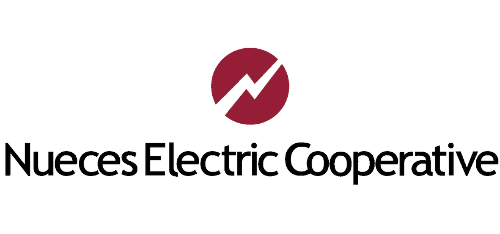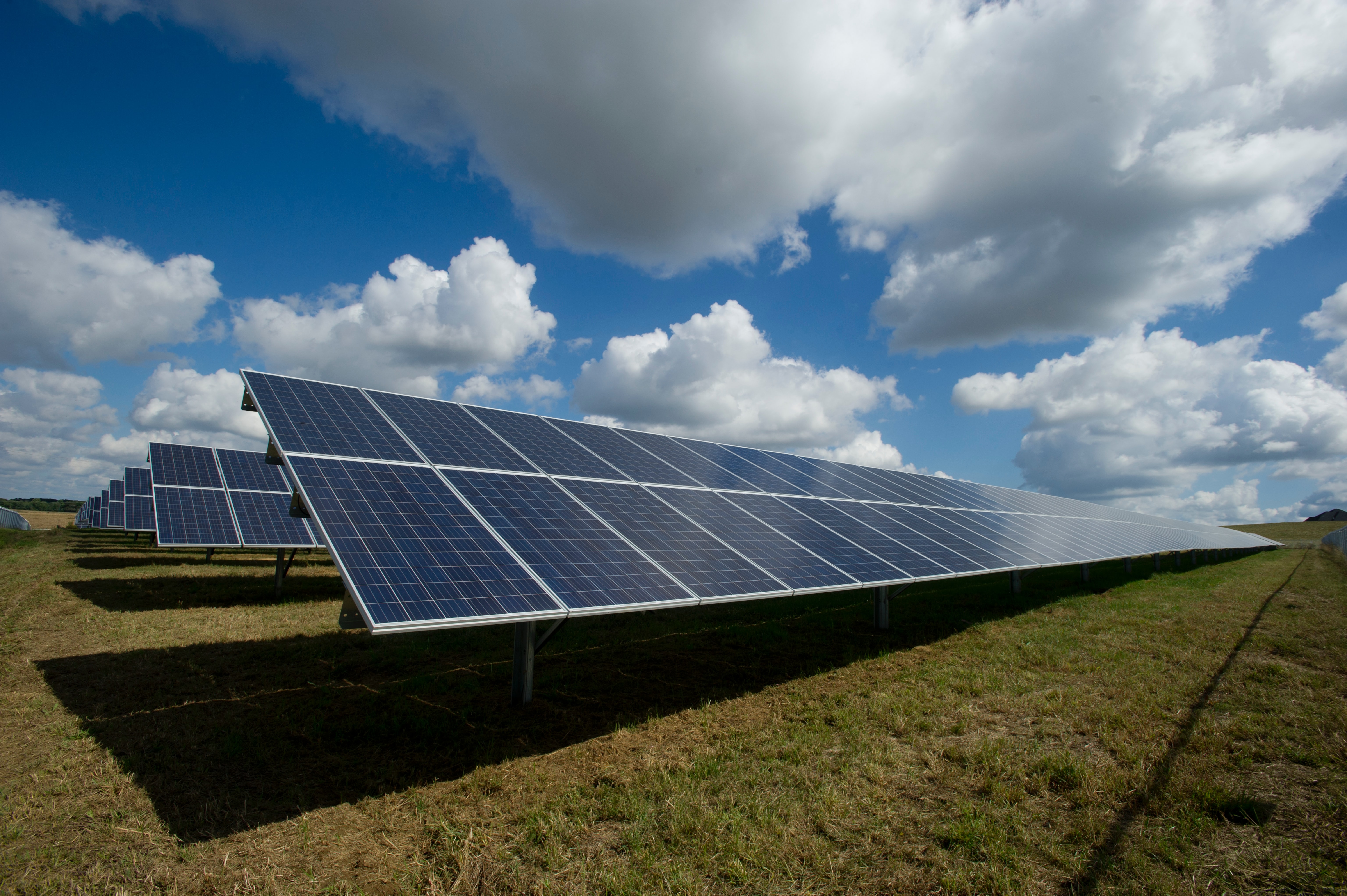Solar energy systems work when sunlight hits a solar photovoltaic module (solar panel) and causes electric current to flow. The current produced from the solar panels is controlled and regulated by an inverter, which converts direct current (DC) to alternating current (AC), needed for use by household appliances. The electrical panel is where the power gets distributed throughout your house; any excess electricity may be sent from the panel back to NEC's power grid.
That depends on several factors. 1) The size of your system. You can determine how much electricity you want to produce; then size your system accordingly. Note that you can start out small and add on. A system that will generate 100 percent of your energy needs is expensive, so most systems are sized to generate only a portion of your home’s needs. Your array size cannot be greater than your facility's current meter kW demand. If your monthly kWh generation is greater than consumption for more than 4 months of a calendar year, you may be required to reduce the size of your array. The kW of the array cannot be larger than the KvA rating of the transformer serving the facility. 2) Your site. If you have a shade-free area from 9 a.m. to 3 p.m., you’ll be able to collect more sun and produce more energy than if your site is shaded. 3) Your region. The sunnier days in your area, the more electricity you’ll be able to generate. You can find online calculators to help answer this question in more detail, and installers can provide details about your situation, too.
Battery-backed or grid-independent systems use on-site energy storage to store excess energy produced during the day for use at night or when the sun is not producing enough power. Choosing this option will add significant cost and maintenance to your system. Most people opt for grid-connected systems for reduced cost, maintenance, and high reliability. With this type of system, your cooperative continues to provide energy to you when you need it 24/7. Your solar energy system will produce energy, and possibly excess energy, on sunny days. Your system will not collect sunlight at night and on cloudy days. That means, you will continue to draw electricity from the Cooperative during these times.
Most grid-connected solar energy systems shut down to prevent back-feeding electricity into de-energized power lines that may have fallen or that line crew members may be working on. It’s important to have this shut-down feature to prevent injuries—and even death—to those working on the line.
You have two options. 1) Member’s chosen retail provider will purchase no output from the generating installation while allowing the Member to use the output to offset the Member 's total consumption. OR 2) Member’s chosen retail provider will purchase the output of Member 's generating installation as measured by a second register configured in the same meter which records the output while measuring the Member 's consumption. Member must contact their chosen retail provider to execute this option. If the option of selling power to the Cooperative is exercised, there will be, in addition to the minimum monthly bill requirements under applicable service rate schedule(s), a customer service charge of $12.00 per month for metering and billing. All members please note while solar panels may offset usage for your home and in some cases offset all of it for a short time, it is highly unlikely the electric bill will ever be $0 for any length of time.
So how does the buyback actually work?
The utility electric meter is set up with two channels. One to measure all inflow of power from the grid and consumed which is billed as a normal electric bill which includes: Power line charges + Transmission and Distribution power lines losses + ERCOT fees + regulatory fees + Retail Electric Provider's (REP) wholesale power purchase cost at the power plant's bus bar + Retail Electric Provider operations cost + taxes + etc.
The second to measure all outflow of the power from your home going out onto the grid. For this power, most REPs can only purchase from you at the whole sale power purchase cost at the power plant bus bar rate. Thus, all of the other costs involved in getting the power to your home are not part of the buy-back parameters. If a home uses 1,100 kWh in a month and also generates out on to the grid 1,000 kWh, you will likely see the following on your bill: 1,000 kWh consumption billed at our normal rate like all of our members. 1,000 kWh generated is shown as a line item credit on our bill at a lower rate than consumption cost. There will not be a 0kWh usage netted out or a $0.00 electric bill. If this was done, the power line providers would not be paid for their power line services and neither would the REP.
When you purchase a solar panel system, you pay up front to install the panels. You may be able to take advantage of state and federal tax credits, but you’re also responsible for maintenance and repairs. The price of solar energy components varies depending on the size of the system (generating capacity), type and quality of the components purchased, and complexity of the system selected. The good news for consumers is that the cost of solar energy has declined dramatically, while the technology has improved, equally dramatically. Installation costs depend on the size and complexity of the system, but also on the home layout and construction. For example, a simple, south-facing roof allows for an easier install than a roof with hips and valleys. In addition, some homes require structural or wiring upgrades. An average 4-kW system may cost between $10,000 and $20,000, before credits and incentives. This is based on a typical installed cost of $2.50 to $5 per watt of distributed generation capacity. To determine your costs, look for online calculators to help you estimate your pricing, and also get bids from reputable installers.
Certified solar energy products and systems generally are reliable, with a life expectancy of about 30 years. Manufacturers test solar panels for hail impact, high wind, and freeze-thaw cycles to represent real-life situations. Most manufacturers offer 20- to 25-year warranties for panels; extended warranties may be available at an extra cost. Little maintenance is required; occasionally it may be necessary to rinse modules off with water to remove dust and grime. Other components like inverters may have a shorter life. Solar panels may outlast the roof where they are attached. Make sure your roof is in good shape or budget for replacement during the life of the system. If you have the space, you might consider a ground mounted assembly for the solar panels.
To begin, you can look at factors such as which direction your roof faces, the condition of your roof, and obstructions such as trees and other buildings that may block the sun during the peak generation period of 9 a.m. to 3 p.m. Solar contractors can provide a more detailed analysis on what to expect.
You can. First, make sure you’ve registered your SmartHub account. Second, visit the “My Usage” section of your SmartHub account.
Before choosing a solar system, be sure that your home is as energy efficient as possible; you may want to get a home energy audit to help determine which improvements will be most beneficial. Investing in energy efficiency provides a faster return on your investment. By improving your home’s energy efficiency first, you will reduce your overall energy use and may reduce the size of solar energy system needed–that saves more money. Also make sure your roof is in tip-top shape. If yours is older, you may need to repair or replace it before installing solar (and remember, a solar energy system may last up to 30 years, so be sure your roof will last, too). Research solar and solar contractors thoroughly before investing in a system; get at least three quotes before choosing a one. Be sure to work closely with NEC for advice and assistance on interconnecting with the grid. We can provide information and history of your energy usage that can help you size your system and evaluate savings. You can also view our Agreement for Interconnection and Solar Application. Any questions? Please give us a call at (361) 387-2581.

